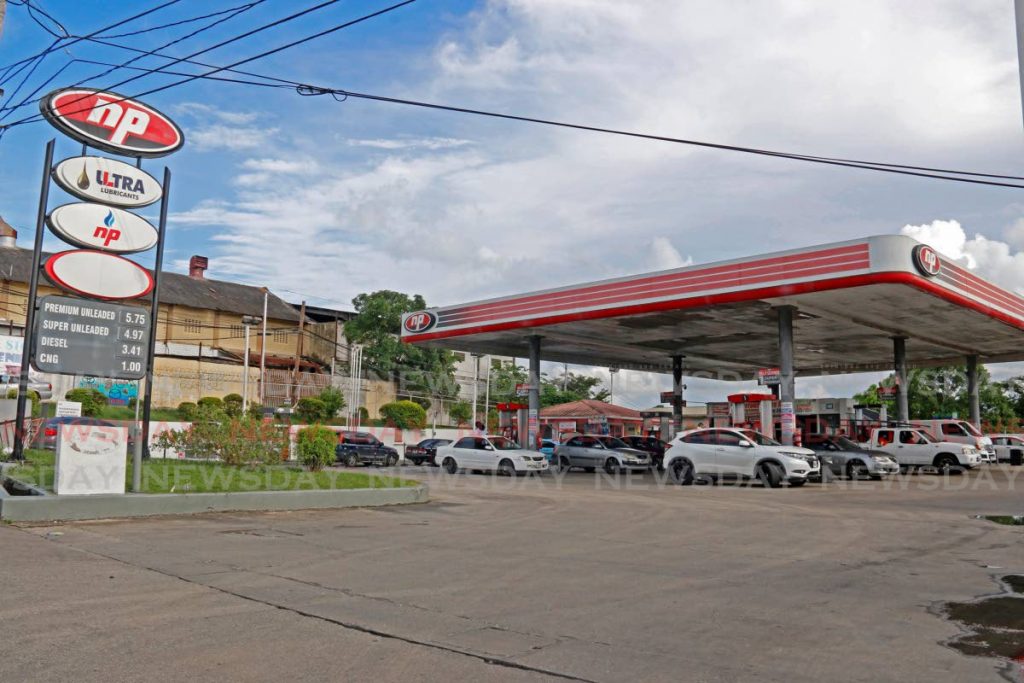Competition will keep gas prices manageable

FINANCE Minister Colm Imbert expects that, even though the fuel subsidy will be removed come January, competition in the marketplace will help keep gas prices manageable.
"Just go to another gas station," he said at the TT Manufacturers' Association post-budget forum at the Hyatt Regency, Port of Spain on Tuesday. "I'm sure there will be competition and if you go somewhere and you see the price too high, you’ll just go to another one."
He did note however, that the distribution of gas stations and their locations through out the country was something government would have to look at.
On Monday, in his sixth budget presentation, Imbert noted there will be a "liberalisation of the liquid petroleum market" and gas station owners and operators would be able to set their own margins in relation to the market price of fuel.
He also announced that government will divest NP-owned service stations, with concessionaires given the first option to buy. For those operators interested but unable to come up with the necessary capital, he said, government will assist them. It was a way to get the private sector into something that was previously reserved for government.
Asked how this divestment would impact NP's operations and if it was a precursor to the total divestment of the state fuel distributor, Imbert said: "We are taking it one step at a time. We thought we would remove the whole concept of a fuel subsidy – get it out.
"Let prices go, as in so many other countries, prices go up and down with the price of oil...We decided we needed to go to that. (On) the questions of disposing assets, we felt it was an opportunity to get the private sector involved in a very important (opportunity)."
The fuel subsidy removal was just one of the "bold moves" government announced in this year's budget, he said. Another major step to incorporate the private sector was privatising commercial aspects of the Port of Port of Spain.
"(This is) part of our partnership. We will invite a private operator to run the terminal and cargo aspect at the Port. We expect this will work very well," he said. Such an investor would be able to come in and upgrade the port, seek new markets, assist in competitiveness, help with ease of doing business, and create a framework for public-private partnerships, he said.
On the increase in the personal income tax allowance with complete tax exemption on salaries $7,000 and less a month, Imbert noted that no one thought government would do something like that and in fact, most thought government would increase the rate.
"We felt at this time because of covid19 restrictions, et cetera, people needed as much assistance as they could get to increase disposable income. We also felt all of that money would be spent (and not much) saved. We are pretty certain (the money) will be spent in retail trade and invested in various assets. This must have a multiplier effect on the economy," he said.
It will also help people at the lowest end of the spectrum. "It serves a multitude of objectives, provides funding for the economym drives the economy and consumption, drives trade and gives people more disposable income," he said.
"Not running a decifit budget in my opinion is impossible (at this time). Every government has recognised you have to maintain the demand side of the economy. If you don’t have the money because of covid19 then you have to borrow and have to invest in the economy," he said.
He also assured contract workers in the public sector that their jobs were not on the line because of the announced public service hiring freeze.
"If you look at the estimates (of recurrent expenditure), you will see vacant posts has its own line item... Another line item is contract employment. If you look at it very closely over the last ten years you will see that (the allocation for vacant posts) is hardly ever utilised. What we found is because it took so long to fill these vacant posts what ministries do towards the end of the financial year and the last few months, they would transfer money out of that line item and use it for something else. So it was hardly ever used for the pupose intended and because we had to cut (expenditure)... you have to start somewhere." He also noted commentary that ministries may have gotten less in their allocations than last year. "Obviously, because we are starting off with a lower revenue estimate." He noted National Security's allocation, $5.2 billion, nearly $1 billion down from the initial allocation last year, was on par with the ministry's actual spend in 2020, although there was a $200 million payout to TSTT two weeks before the end of the fiscal year, but that was an extraordinary payment. "If you take that out the allocation to National Security in 2021 is exactly the same within a few dollars of what was actually spent in 2020."


Comments
"Competition will keep gas prices manageable"